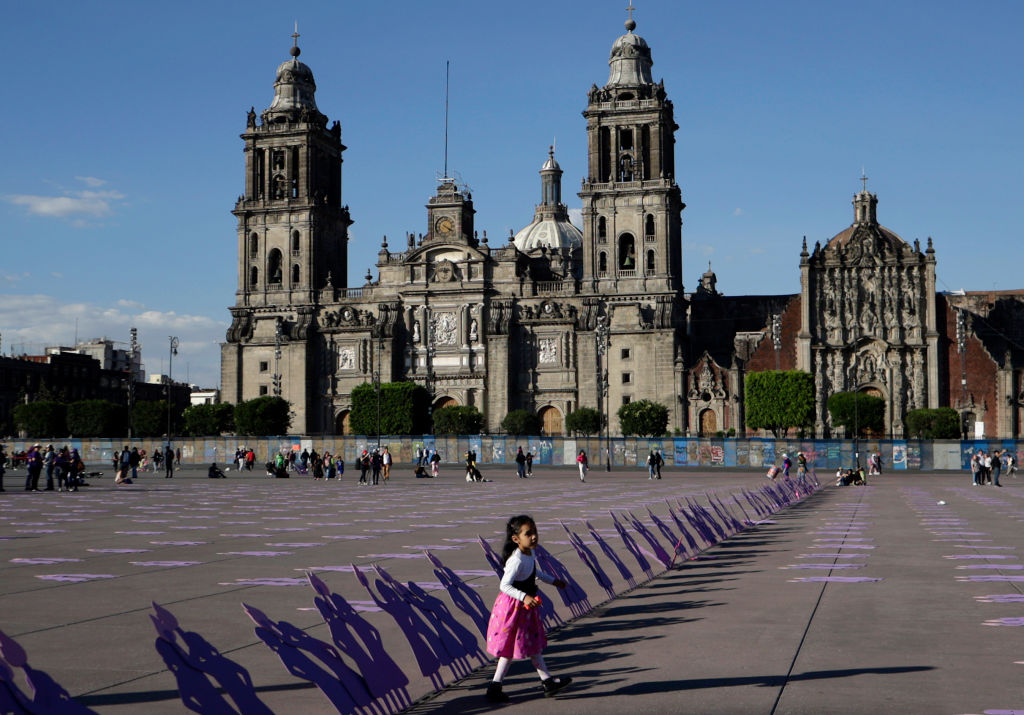A Series of Venezuelan Shifts
A Series of Venezuelan Shifts
In recent days, Venezuela's President Hugo Chávez shifted tone on several policy fronts and urged the FARC to end its armed conflict with the Colombian government. But Chávez's critics complain he continues to attempt to silence opposition.
In recent days, Venezuela's President Hugo Chávez appeared to backpedal on several policy fronts, from foreign policy to the economy to intelligence. Chávez, who gained international media attention in 2006 for a UN General Assembly speech in which he referred to President George W. Bush as "the devil," said Saturday he would like "to work together with the next U.S. president." He agreed to revise a new intelligence law widely condemned by human rights groups for potentially laying the groundwork to create a nation of informers. His government, facing rampant inflation, plans to announce a new set of economic measures and to open up three areas of the nationalized Orinoco oil belt to private companies for development.
Perhaps the most surprising of Chávez's weekend remarks came when he urged Colombian rebels to end their conflict with that country's government and to release all hostages. "At this moment in Latin America, an armed guerilla movement is out of place," he said of the Revolutionary Armed Forces of Colombia (FARC). Chávez's remarks came a day after Colombian authorities arrested a Venezuelan national guard officer carrying 40,000 AK-47 rifle cartridges. Captured in eastern Colombia, the weaponry may have been intended for FARC use. Bogota welcomed Chávez's message for the rebel group, which came following weeks of tension over a captured laptop that tied Venezuelan president to the FARC, considered a terrorist group by Colombia, the United States, Canada, and the European Union.
Chávez's recommendations regarding the FARC inspired hope that the embattled rebels may be forced one step closer to ending four decades of civil strife. In recent weeks, the group acknowledged the March death of leader Manuel Marulanda. Several members of the FARC's senior leaders have been arrested or killed in recent months and the group faced large scale desertion.
Yet, in spite of the series of shifts the Venezuelan president in recent days, Chávez's critics say he continues to attempt to silence the opposition in his own country. Thousands protested in Caracas over the weekend against a "blacklist" barring roughly 400, mostly opposition politicians from running in November municipal elections.
Furthermore, although Chávez said he will seek changes to a controversial intelligence law, his government plans to revise rather than revoke it. Under the law, new espionage agencies received authorization to request support from civilians while gathering intelligence inside and outside Venezuela. Critics say this could turn Venezuelan citizens into whistleblowers forced to inform on neighbors or family members. Venezuelan Supreme Court Justice Blanca Rosa Mármol de León expressed her concern that the law served as “the first step towards creating a society of informers."
Meanwhile, Venezuelan journalists engaged in uncovering Venezuelan political corruption find themselves under mortal threat. After leaving his office June 2 at the Caracas-based daily newspaper Reporte Diario de la Economía, Pierre Fould Gerges was slain at a gas station by an unidentified gunman on a motorcycle. He sustained 17 gunshot wounds yet none of his belongings were stolen. The evidence suggests the crime was related to the more than 50 death threats received over the past year by his brother—and the newspaper’s president—Tannous Gerges. The victim was driving his brother’s car.
While the motives for the murder remain unclear, close legal advisors to the Reporte Diario de la Economía believe it has much to do with the newspaper’s frequent coverage of government corruption, according to the Committee to Protect Journalists. The Financial Times reports about a current parliamentary investigation into whether members of Chávez's family used public funds to aquire farmland in the state of Barinas.
Read a recent AS/COA Online interview with Venezuelan student activist Yon Goicoechea.






